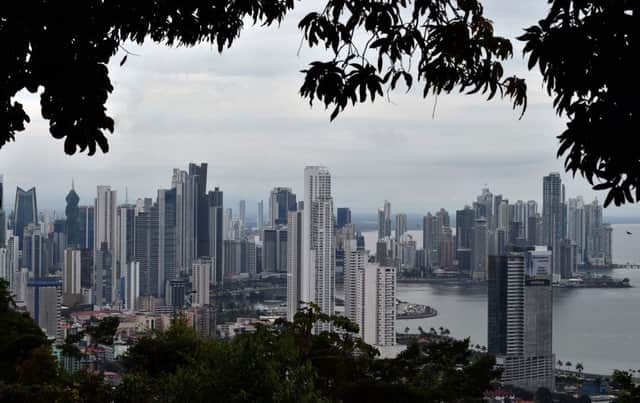Leader comment: Panamanian leaks must be investigated fully


When looking at the allegations made against individuals as a result of the Panamanian law firm leak, it must be remembered that offshore banking is not in itself breaking the law.
For years, people have legitimately used offshore accounts for a variety of reasons.
Advertisement
Hide AdAdvertisement
Hide AdHowever, at the same time, the sector is regulated and regulations need to be adhered to.
The law company involved, Mossack Fonseca, claims it has operated for 40 years without being found guilty of any wrong doing in its actions, however, whether everything is above board needs to be looked at – especially considering the papers relating to money garnered from the notorious Brink’s Mat robbery in 1983, which it has been alleged was laundered using a company set up by Mossack Fonseca.
Should details of every rich person’s money be known? Yes. We are not saying it needs to be public, but that the authorities need to know about it – and need to ensure that they take the right taxes from them as everybody else has to do. And it is a means of discovering criminal activity.
Tax laws, as we all know, are incredibly complicated. But what comes out of this strongly is the potential conflict of interest for senior politicians.
One prime example is the Icelandic prime minister, Sigmundur David Gunnlaugson, who has been accused of a conflict of interest over a company he allegedly owned with his wife which is claiming money back from three Icelandic banks following the crash. Yet as prime minister, he was involved in brokering a deal for the banks’ claimants.
It is quite right that HMRC is investigating the papers, which have been passed to it by the International Consortium of Investigative Journalists.
Countries should not defend these allegations: they should pledge to investigate the conflicts of interest and the involvement of politicians and business people which have been thrown up. Indeed, in dealing with this, leaders should follow the example of Nicola Sturgeon, who has said she will make public details of the £10 billion “Memorandum of Understanding” her government made with China, which she was accused of trying to keep under wraps until after the election on 5 May.
This information may not be shocking in many ways, after all, it has been long known that rich people have ways of keeping their money safe that the rest of us cannot imagine.
Advertisement
Hide AdAdvertisement
Hide AdBut many of these allegations are simply unacceptable and need to be looked into properly by the states involved. Also, in Britain, there is a certain involvement which cannot be overlooked. Experts have pointed out the UK has the power over British overseas territories and could close down some offshore havens, the biggest the British Virgin Isles.
These documents have been analysed by some of the world’s top investigative journalists, they have been looked at for a year and the allegations have not been made lightly. This cannot be dismissed as just a trouble-making leak. This needs to investigated.
Turkey’s refugee deal is a muddle
The first refugees have been deported back to Turkey under a scheme devised by the European Union to supposedly help ease the migrant crisis in Europe.
It is early days – only a couple of hundred people were taken back yesterday under the deal with Turkey – but it already seems to be a very complicated way of doing things.
In return for each illegal migrant returned to Turkey, a refugee from Syria who has made a legitimate request for asylum will be placed in Europe. It is far too complicated and difficult – and far too costly.
It is also far too open to challenge.
The idea that people will meekly go back to where they are told to go is ludicrous. We have already seen the first boat of refugees arrive in Italy from Greece since the border with Macedonia was closed last month. People are going to take whatever risks they feel are necessary to get to where they want to go, as they did before.
We need to find a way of dealing with this that is practical – and deals with the refugees as human beings. Many of them will already have family living in Europe and are unlikely to agree to being separated from them permanently.
If legal routes to claiming asylum in countries where they can live safely are not found, this scenario will continue to repeat itself. Meanwhile, aid organisations have warned that Turkey is not necessarily a safe place for refugees. This EU muddle is no solution.
The only way that this situation is going to stop is by the end of the war in Syria. This is the only solution and finding a resolution to the conflict is where all of our resources should be going.